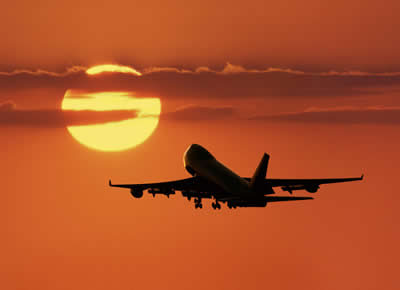Northwest - Delta PolicyMinnesota-based Northwest Airlines announced that as of February 1st the carrier will serve peanuts and tree-nuts during flights, regardless of the presence of food allergic passengers. Airline officials indicate that the change is due to the merger with Delta airlines, which is based in Atlanta. Delta intentionally supports peanut farmers in Georgia by serving peanut snacks on flights.
The
new policy also emphasizes that the airline will no longer make announcements at the beginning of a flight discouraging the consumption of peanuts or tree-nuts (or foods containing them), nor will they ask others to refrain from bringing products with peanuts nuts on board.

As required by federal regulation, Northwest is wiling to implement a 3-row buffer zone in front and behind an allergic passenger.
Accommodations LackingNorthwest's new policy ironically reverses the trend towards accommodations for disabled travelers and increased concern over allergen safety on board airlines. For example, last year a Congressional amendment banning peanuts from airplanes was nearly offered to the Federal Aviation Administration (FAA) bill. (For an article on the amendment, see
FAA fighting comes down to peanuts).
The
U.S. Department of Transportation provides
information and texts of federal policies relating to passengers with
disabilities, but sadly lacking are policies to ensure safe travel
for food allergic passengers. Food allergy reactions vary - passengers can suffer mild localized reactions from contact with an allergen (directly or on the surface of something), can suffer mild to severe respiratory symptoms from inhalation, or can suffer anaphylaxis from ingestion of an allergen. The
most concerning are from oral injestion.
Those suffering from peanut allergies must always be vigilant against
accidental exposure on board airlines even on planes that are
peanut-snack free because other passengers may have residue on their
hands or clothing (or even be carrying their own snack food with peanut
ingredients), there may be residue on the seats and trays, and the food
provided by airlines is not guaranteed to be peanut-free.
Passengers
with other food allergies have the same challenges: a national food allergy organization employee said that a passenger once reacted to shellfish being prepared in an airplane galley. Those with milk allergy may have to guard against allergens from cheese cracker snacks.
ReactingAlthough eliminating peanut snacks on some flights or airlines did not eliminate the risk of allergic reactions, it reduced the risk of inhalation reactions. Nontheless, all food allergic patients were and are advised to carry epinephrine autoinjectors (Twinject or EpiPen). Because a dose will be effective 10-20 minutes after being administered, it is sensible to carry multiple autoinjectors during a flight to ensure that enough medication is available until a passenger can reach a hospital.
Passengers must carry autoinjectors in the fully labeled container from the pharmacy. They should also have a letter or form from their physician to faciliate passage through security checkpoints.
ReportingIn the latest issue of Allergic Living Magazine, the magazine's cover story,
Flying Allergic, addresses the dangers and challenges of flying with food allergies. The magazine also provides a
chart comparing allergy policies between many airlines. The article and chart indicate a wide range of accommodations or lack of accommodations for those with food and environmental allergies.
The Allergic Living article and the
Peanut Allergy Answer Book by Harvard Medical School physician Michael C. Young both point out that passengers seldom report their reactions to airline personnel.
The lack of reporting leads the airline industry to underestimate both the number and the severity of reactions occurring on airplanes.A
Star Tribune article
about the new Northwest Airline peanut snack policy was published
February 13th. Many of the Star Tribune reader comments were hostile to
those suffering from peanut allergy - an indication of the lack of awareness and understanding about the dangers of food allergies.
In 2008 the
U.S. Centers for Disease Control and Prevention indicated that
food allergies are increasing in number and in severity. Given these circumstances, it behooves airlines to enact policies to avert potentially serious reactions.
AdvocacyAFAA is researching the issue and exploring options, and has been in contact with Congressional offices and Northwest airlines. Minnesota's Senator Amy Klobuchar is a member of the U.S. Senate Committee on Commerce, Science, and Transportation, and Minnesota's Representative James L. Oberstar serves on the U.S. House Committee on Transportation and Infrastructure: both committees oversee airlines. (In fact, Representative Oberstar is the chair of the subcommittee on Aviation.)
If you have had a food allergy reaction on an airline, or frequently fly, contact AFAA:
AFAA will share your stories with these Congressional Members and also with Northwest Airlines.Be Prepared- Carry Epinephrine(preferably more than one injector) and meds on you (not in suitcase or carry-on bag)
- Don't Eat Airline Food (Bring your own from home)
- Wipe Seats & Trays (bring wipes from home)
- Communicate (with flight attendants, reservation agent, gate agent, etc. prior to flight)